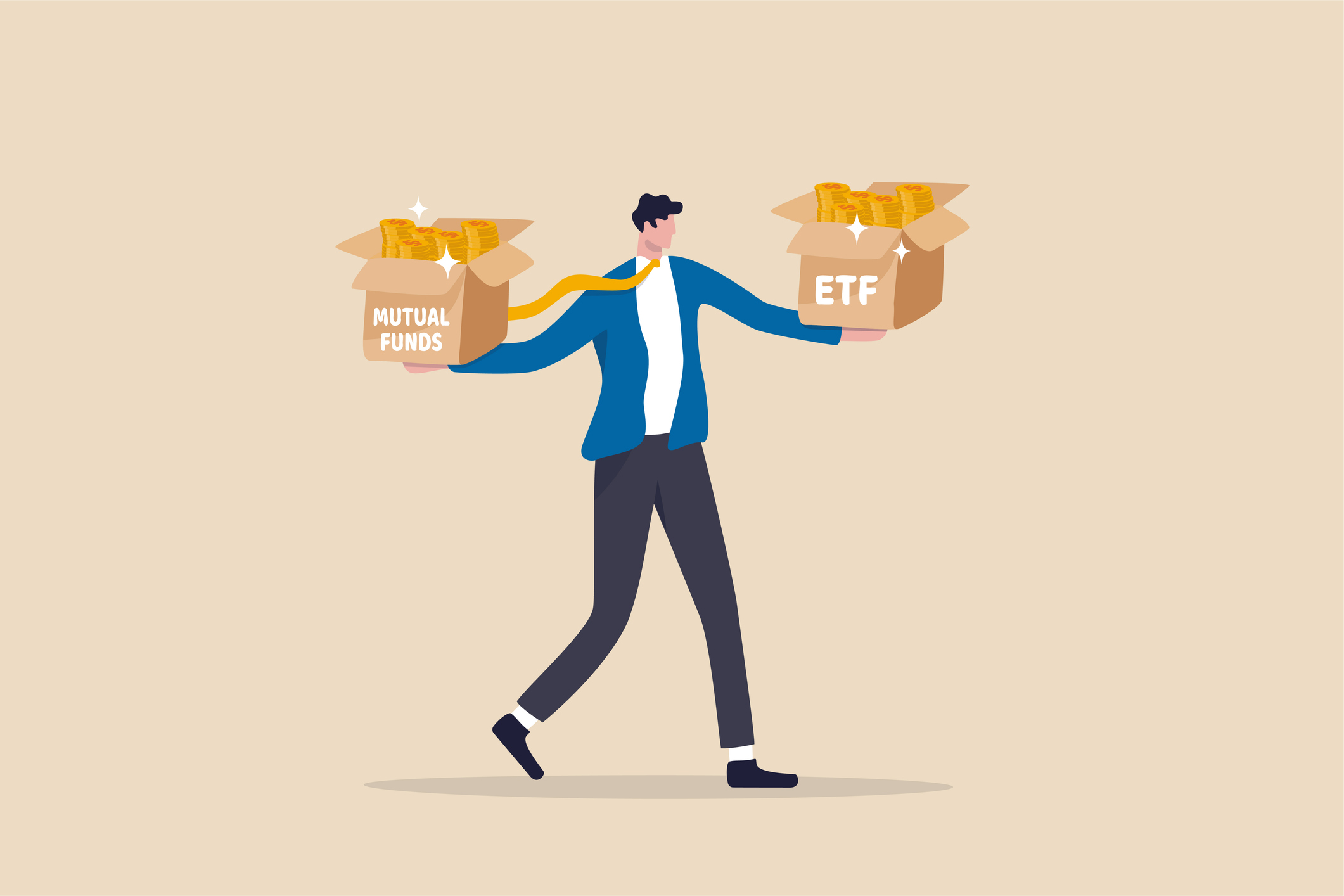Are E-Trade Accounts Still Safe?
There are several safeguards in place to protect your money if your broker goes bust.

Profit and prosper with the best of Kiplinger's advice on investing, taxes, retirement, personal finance and much more. Delivered daily. Enter your email in the box and click Sign Me Up.
You are now subscribed
Your newsletter sign-up was successful
Want to add more newsletters?
I've been reading about the financial troubles that E-Trade is having now and am concerned about my accounts. What happens to investors' accounts if their brokerage firm has financial trouble?
There are several safeguards in place to protect your money if your broker goes bust.
Most important, brokers have to follow strict SEC rules about segregating the firm's money from the customers' investments. Even if the broker has financial trouble, the investors' money should still remain intact.
From just $107.88 $24.99 for Kiplinger Personal Finance
Become a smarter, better informed investor. Subscribe from just $107.88 $24.99, plus get up to 4 Special Issues

Sign up for Kiplinger’s Free Newsletters
Profit and prosper with the best of expert advice on investing, taxes, retirement, personal finance and more - straight to your e-mail.
Profit and prosper with the best of expert advice - straight to your e-mail.
"Even if a firm is in very serious trouble, it can either merge with another brokerage firm or sell part of its business," says Stephen Harbeck, president and CEO of the Securities Investor Protection Corporation. "We only get involved when a firm used up its capital and has misappropriated customers' securities." SIPC has only been involved in six cases in the past four years.
Brokerage firms are members of SIPC, which protects investors when brokers go under and works a bit like the Federal Deposit Insurance Corporation (with some key differences). If a brokerage firm fails, SIPC first tries to transfer the investors' securities to another firm. If that doesn't work, then it tries to rebuild the investors' portfolios, even buying new stocks or bonds to make up for any missing shares.
"To the maximum extent practicable, we give you exactly what was in your account, and if we have to buy it we will," Harbeck says. If the investments aren't available, SIPC will give you cash based on their value when the brokerage went under.
Options are tricky, though. "We close out all options transactions on the date of the brokerage failure and either credit or debit the account as appropriate," Harbeck says.
SIPC first returns your share of the broker's remaining assets, then uses its own funds (up to $500,000 per account, with a $100,000 limit on cash) to buy the same number of shares that you originally owned. That $500,000 limit only applies to the maximum amount SIPC will spend on its own to make up for any missing securities; not the total amount of money you can get back. If many of the customers' assets remain intact, you can get back a lot more than that SIPC limit.
But the downside is that you may lose access to your money for a while. "The fastest that an investor could conceivably get back in control of one's account is one week," Harbeck says.
That happened during the MJK Clearing case in 2001, when the acquiring brokerage had the same computer system as the firm that went under. "In most situations, it takes two to three months," he says. And the process can stretch out even longer if the brokerage firm kept shoddy records.
SIPC does not protect against market losses while your account is in limbo.
In the very rare cases in which an investor's losses exceed SIPC's limits, most brokers have supplemental insurance that kicks in to make up the difference. E-Trade, for example, has a total of $600 million in extra coverage, with a $150 million limit on the combined return to any customer from trustee distributions, SIPC and the extra coverage.
SIPC covers cash and securities, such as stocks and bonds, held at a brokerage firm. Deposits at insured banks, such as E-Trade Bank, are covered by the FDIC. For more information about how the FDIC works -- and what happened to depositors when NetBank went under last month -- see my When a Bank Closes column. Also see the FDIC's Web site.
For more information about how SIPC works, and to make sure your brokerage firm is a member, see SIPC.org.
Profit and prosper with the best of Kiplinger's advice on investing, taxes, retirement, personal finance and much more. Delivered daily. Enter your email in the box and click Sign Me Up.

As the "Ask Kim" columnist for Kiplinger's Personal Finance, Lankford receives hundreds of personal finance questions from readers every month. She is the author of Rescue Your Financial Life (McGraw-Hill, 2003), The Insurance Maze: How You Can Save Money on Insurance -- and Still Get the Coverage You Need (Kaplan, 2006), Kiplinger's Ask Kim for Money Smart Solutions (Kaplan, 2007) and The Kiplinger/BBB Personal Finance Guide for Military Families. She is frequently featured as a financial expert on television and radio, including NBC's Today Show, CNN, CNBC and National Public Radio.
-
 Why Some Michigan Tax Refunds Are Taking Longer Than Usual This Year
Why Some Michigan Tax Refunds Are Taking Longer Than Usual This YearState Taxes If your Michigan tax refund hasn’t arrived, you’re not alone. Here’s what "pending manual review" means and how to verify your identity if needed.
-
 If You'd Put $1,000 Into Caterpillar Stock 20 Years Ago, Here's What You'd Have Today
If You'd Put $1,000 Into Caterpillar Stock 20 Years Ago, Here's What You'd Have TodayCaterpillar stock has been a remarkably resilient market beater for a very long time.
-
 Good Stock Picking Gives This Primecap Odyssey Fund a Lift
Good Stock Picking Gives This Primecap Odyssey Fund a LiftOutsize exposure to an outperforming tech stock and a pair of drugmakers have boosted recent returns for the Primecap Odyssey Growth Fund.
-
 3 Major Changes Investors Must Prepare for in 2026
3 Major Changes Investors Must Prepare for in 2026A possible stock market bubble. Trump accounts. Tokenized stocks. These are just three developments investors need to be aware of in the coming months.
-
 Government Shutdown Puts IPO Resurgence at Risk
Government Shutdown Puts IPO Resurgence at RiskThe IPO market has been sizzling in recent months, but the government shutdown threatens to put a short-term halt to public offerings. Here's why.
-
 Mutual Funds Are About to Get the ETF Treatment. Here's What It Means for Investors
Mutual Funds Are About to Get the ETF Treatment. Here's What It Means for InvestorsThe SEC is expected to decide soon whether mutual funds from dozens of providers can be offered as ETF share classes.
-
 SEC Cracks Down on Misleading Fund Names: The Kiplinger Letter
SEC Cracks Down on Misleading Fund Names: The Kiplinger LetterThe Kiplinger Letter The SEC rules aim to crack down on so-called “greenwashing” — misleading or deceptive claims by funds that use ESG factors.
-
 Best One-Year CD Rates
Best One-Year CD RatesSavings The best 1-year CD rates are a smart way to achieve short-term savings goals.
-
 What Is a High-Yield Savings Account?
What Is a High-Yield Savings Account?A high-yield savings account is essentially the same as a traditional account with one key difference — it pays a higher-than-average APY on deposits.
-
 For a Concentrated Stock Position, Ask Your Adviser This
For a Concentrated Stock Position, Ask Your Adviser ThisThere can be advantages to having a lot of stock in one company, but ‘de-risking’ can help avoid some significant disadvantages.
-
 Trusting Fintech: Four Critical Moves to Protect Yourself
Trusting Fintech: Four Critical Moves to Protect YourselfA few relatively easy steps can help you safeguard your money when using bank and budgeting apps and other financial technology.